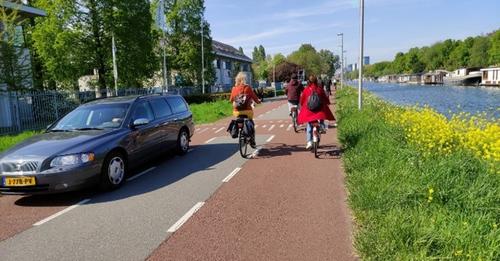
EU CYCLE Action Plan implementation: Italy
EU CYCLE Action Plan implementation: Italy overview
EU CYCLE aims at improving performance of 4 policy instruments addressed through interregional learning and regional action planning. It will thereby contribute to better quality cycling projects, to raise share of cycling in target regions via improved policies and state-of-the art solutions, with a higher impact on decarbonizing transport.
The common challenge lies in the fact that although cycling related projects were supported by approximately €0.6bn EU subsidies between 2007–2013, good practices were not shared and knowledge about them is unevenly distributed in regions involved, so not taken up by their policy instruments. Since MAs, regional stakeholders and potential project holders aren’t aware of good practices and of advantages of potential adaptation, lack of knowledge decreases interest in developing cycling projects and risk that the €166,1M allocated for cycling in the policy instruments addressed are spent effectively.
Partners, all previously involved in INTERREG projects on different subtopics – regional cycling, cycling tourism, urban cycling, intermodality, urban-rural connections, territorial cooperation in cycling – have decided sharing their experiences to increase capacities of using available funds fully and in an efficient way for quality cycling projects.
Partners’ relevant experiences in the 6 subtopics will be shared, jointly analyzed and fed into an earmarked online database of 100 state of the art cycling projects, while 24 of them will be added to the Programme Policy Learning Platform. Partners will work with regional stakeholders on adapting experiences learned in 4 regional Action Pans, improving their policy instruments’ results. An Integrated Cycling Planning Guide will be jointly elaborated to summarize best solutions in technical aspects of cycling.
EU CYCLE will increase capacities both on the governance side of policy instruments and on the side of potential beneficiaries to develop and realize projects.
Project partners:
West Pannon Nonprofit Ltd. (HU)
European Cyclists' Federation (BE)
Euregio Rhine-Waal (DE)
Association of Bialystok Functional Area (PL)
Region of Apulia (IT)
€1,060,181.00
Low-carbon economy
The policy instrument (PI) is priority 3 (Shift towards the lowcarbon economy with a focus on urban areas) and 6 (Sustainable urban development in cities with county
rights) of the TOP under investment priority 4E.The first call opened in 2016Q1, and will be regularly open till 2020. Call conditions are to be continuously monitored and developed further. Beneficiaries are settlements, public transport (PT) providers, state road maintenance companies. Goal is to implement complex sust.traffic improvement measures within/between settlements that contribute to decrease CO2 emission. Tools include support for investments in regional/urban cycling networks, developing links to PT, measures targeting behavioral change, promoting “slow city” concept in urban development. Projects supported by the TOP have to fit regional Integrated Territorial Programs (ITP) that have been elaborated by county self-governments (NUTSIII level), while 28 bigger cities with county rights have own ITPs, too. The instrument should be improved by fostering best available solutions (e.g. sustainable mobility planning, intermodal solutions, public bike service schemes, awareness raising/education), by better aligning funding criteria with actual local needs of regions and settlements and by developing solutions for a network based territorial
coordination of sustainable transport planning/management. This requires a more nuanced, cooperative approach from both beneficiaries, regions and decision makers.
The INTERREG VA DE-NL Programme focuses on the promotion of cooperation between citizens, companies, educational institutions and organisations across the Dutch-German border. Overall objective is to support the attractiveness and strengthen the economic position of the crossborder region. Priority 2 “Social-cultural and territorial cohesion of the programme area” aims to decrease barrier effects of the border. Point 1 of the priority “Structure and demography” concerning the promotion of initiatives on the feasibility and usage of cross-border (public)transport networks forming synergies with the topic ‘logistics’ within the first priority axis, as well as point 8 specifically regarding the topic “development of natural and cultural heritage, sustainable tourism (development of cross-border, climate neutral and suitable cultural
touristic offers)” is relevant for the subject of cooperation proposed by EU CYCLE. Cycling routes in the region mark an important economic and touristic factor. Cycling furthers sustainable and climate neutral tourism, which generates jobs and economic growth. Thus, Euregio Rhine-Waal wants to further the development of tourism offers in this area. In the framework of INTERREG Euregio has already initiated and supported a number of projects. Now we would like to share lessons learnt and explore possibilities to extend the promotion of cycling tourism. Overall, this will both benefit the economic potential of the region and its low-carbon activities.
The policy instrument for Podlaskie region directly referring to the issue of cycling is Regional Operational Program for Podlaskie Voivodeship (Detailed description of Priority axes) which is implementing directions for Podlaskie Voivodeship Development Strategy 2020.The document raises significance of low emission strategies and pays attention to some of the issues connected with cycling but also leaves a field for dialogue and potential specification. In priority „Low carbon economy” with specific objective of reducing air pollution through the implementation of low carbon economy plans, there is action 5.4„Low carbon strategies” targeting sustainable transport. The MA pointed preferable types of projects connected with cycling:
- Construction, reconstruction and development of linear and point infrastructure of public and non motorized transport, eg.: integrated transport hubs; bikepaths; P&R and B&R; construction and modernization of buslanes;
- Construction/reconstruction of bikepaths or pederastian/bikepaths, among of others construction of parkings for bicycles by public transport hubs, including infrastructure such as sheds, bike racks.
The only output connected directly with cycling is length of bikepaths. Within EU CYCLE, the issue of bike infrastructure quality shall be tackled. Future PI documents have to be created on the basis of interreg. learning process to make them more effective and user-friendly.
Within the POR PUGLIA 2014-2020, the two priority axes more concerned with the promotion of sustainable mobility are:
No. 4 – “Sustainable energy and life quality” and
No. 7 – “Transport systems and network infrastructure”.
Investment priority 4.e aims to achieve low carbon emissions throughout the regional territory, especially in the urban areas, also through the promotion of sustainable multimodal urban mobility, Investment priority 7.b is oriented towards the promotion of sustainable transport systems and the removing of bottlenecks in the main network infrastructure.
Cycling oriented policies are considered within these two investment priorities. This cooperation project will be useful in order to improve the selected policy instrument also finding new solutions to help improving urban mobility and promoting cycling mobility and intermodality between bicycle and public transport.

EU CYCLE Action Plan implementation: Italy overview
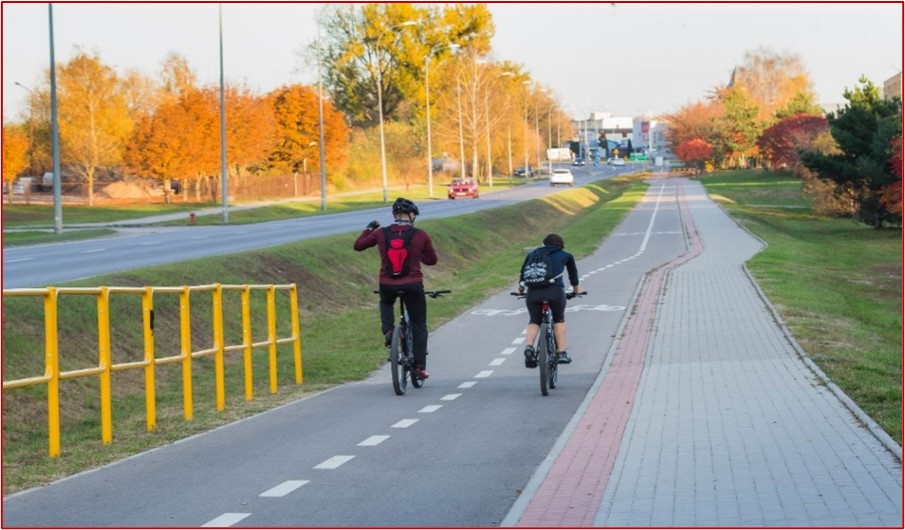
EU CYCLE Action Plan implementation: Poland overview
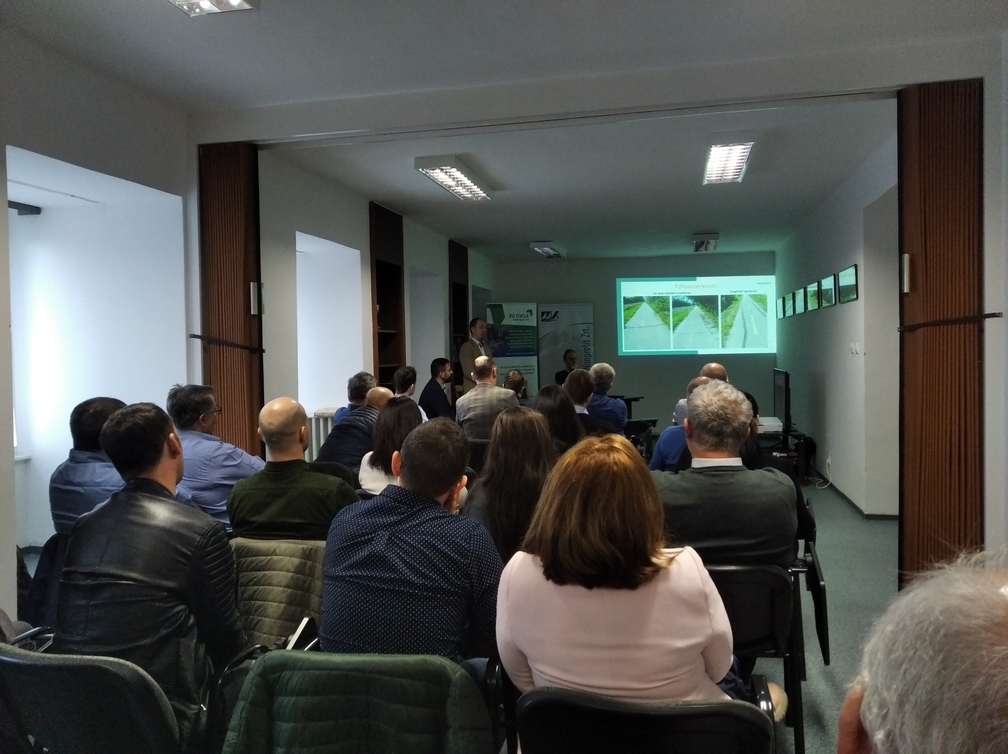
EU CYCLE Action Plan implementation: Hungary overview
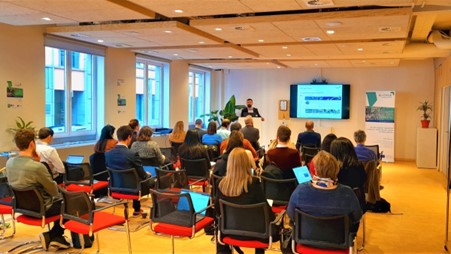
EU CYCLE Project Final Conference: Tales from European regions that are stepping up
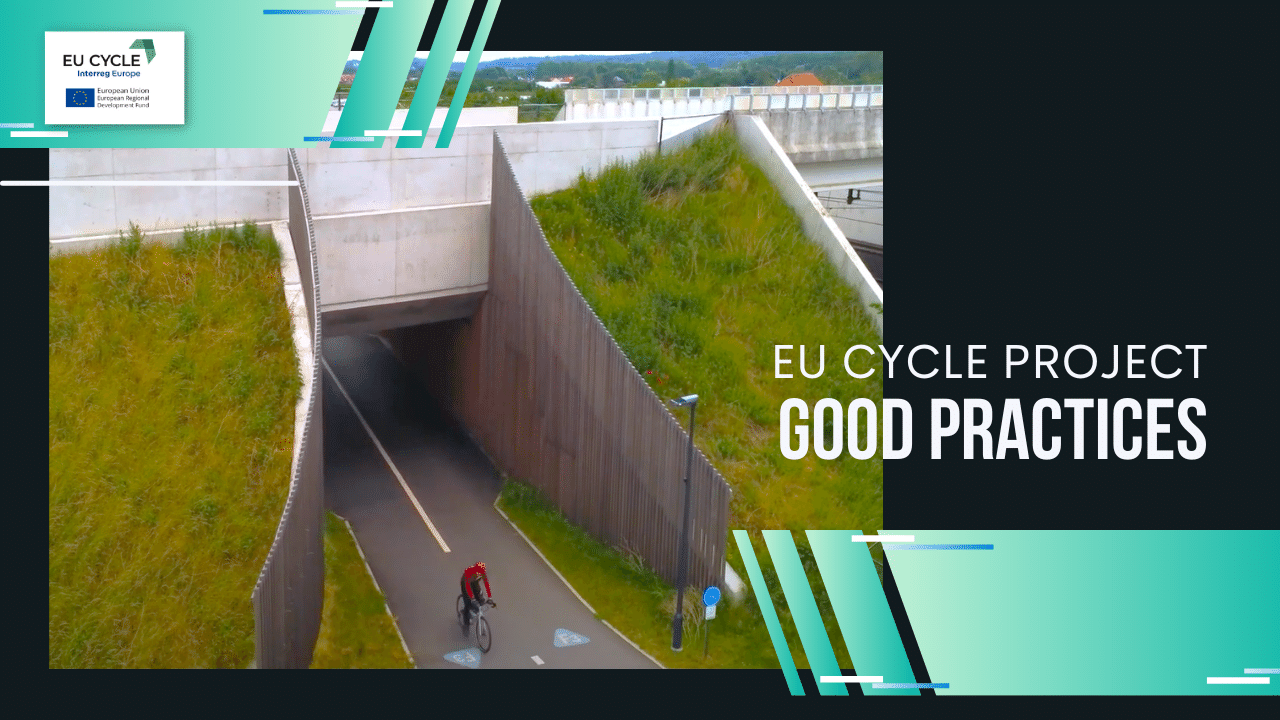
With the ambition to improve the implementation of policies through interregional cooperation by sharing valuable experiences and good practices, the EU CYCLE...
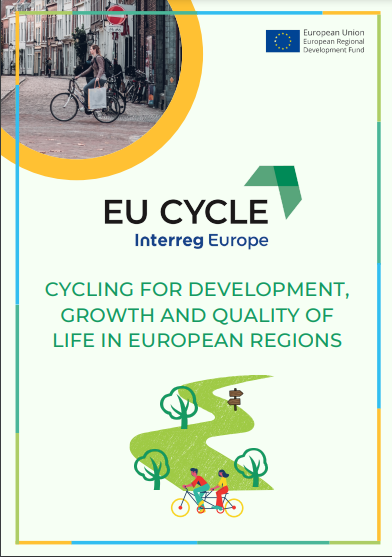
The EU CYCLE Project brochure can now be found in the Library section of the project website.
Discover one of the most interesting good practices gathered ...
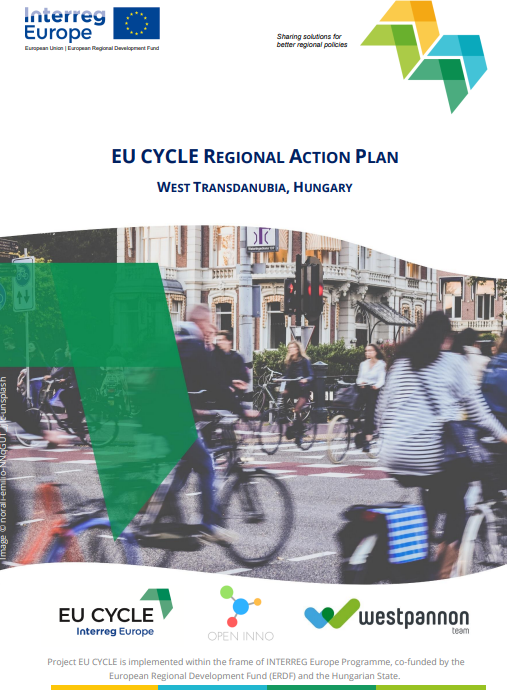
Taking into account the aim of improving the quality of cycling projects through enhancing the effectiveness of specific policy instruments, EU-funded operati...
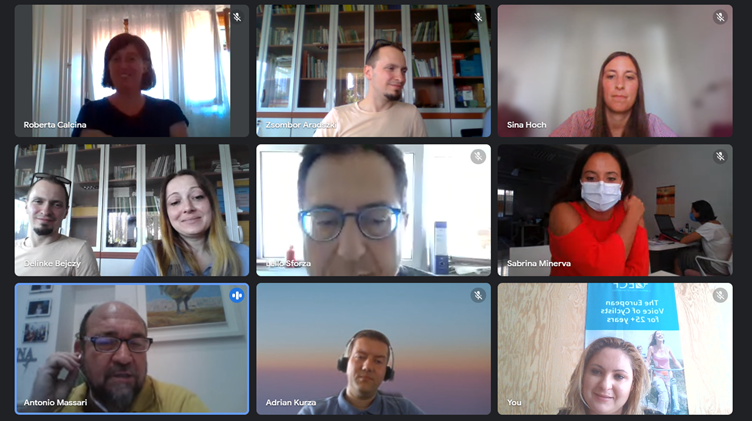
Approaching the end of the Phase I of the project, EU CYCLE project partners organised a final Steering Committee Meeting on the 14th of July, 2022.
The pa...
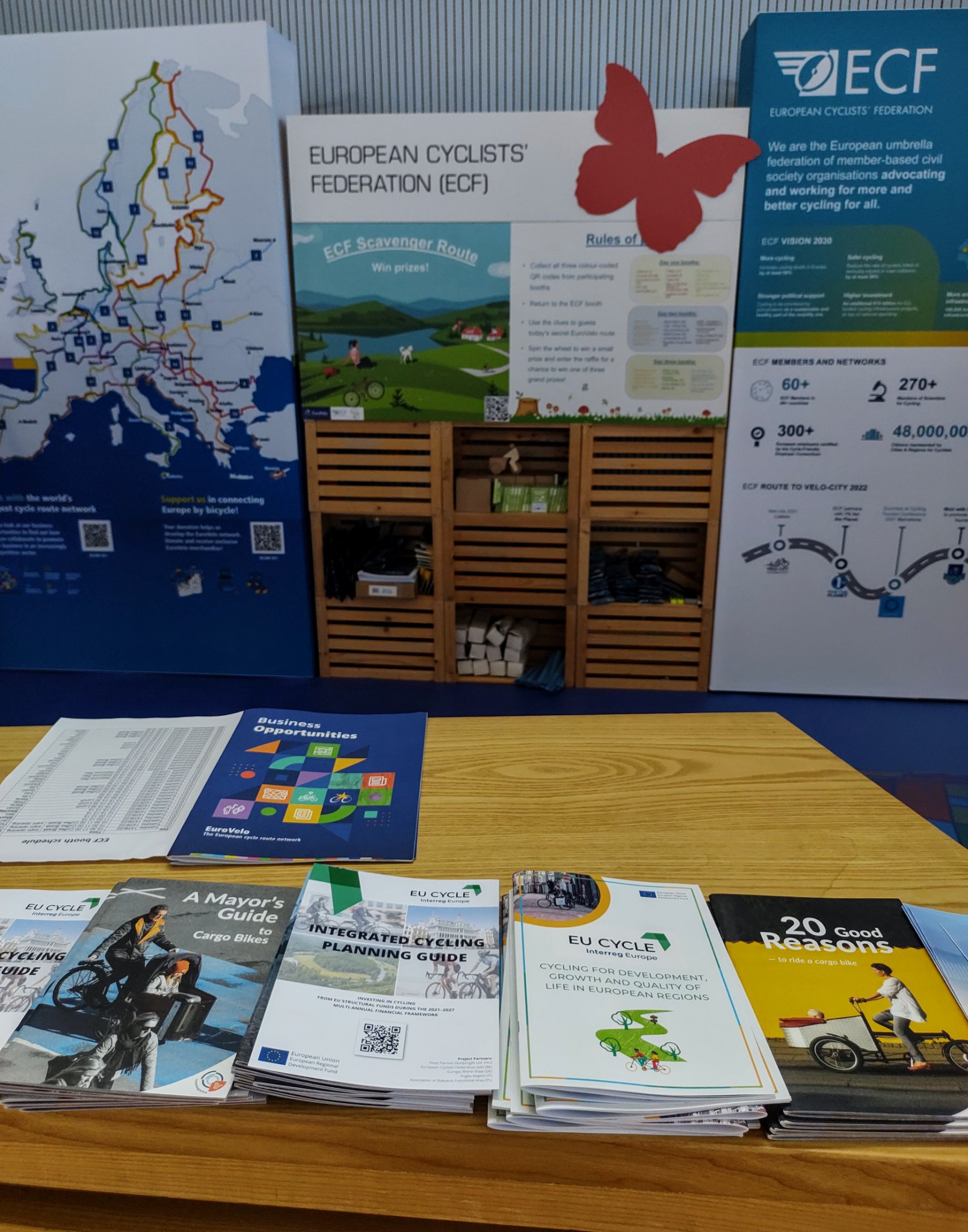
The Velo-city conference took place in Ljubljana this year and was a great opportunity for the EU CYCLE project to promote once more its deliverable – the Int...
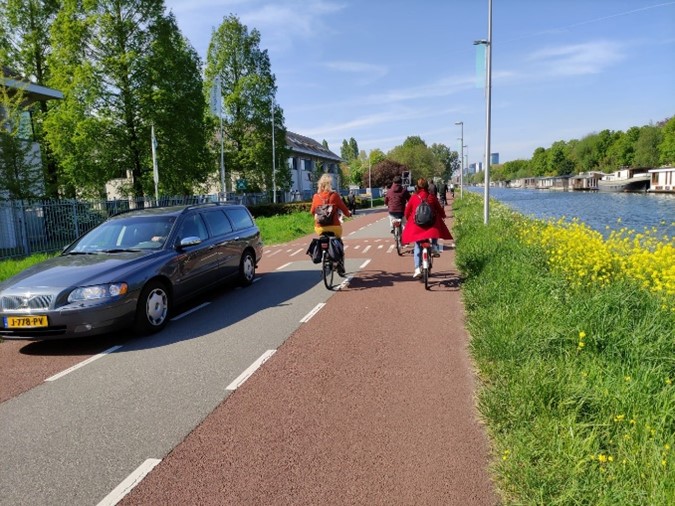
Following a very productive series of virtual study visits, Puglia Region, EU CYCLE project partner, had a wonderful opportunity to have a delegation visit se...